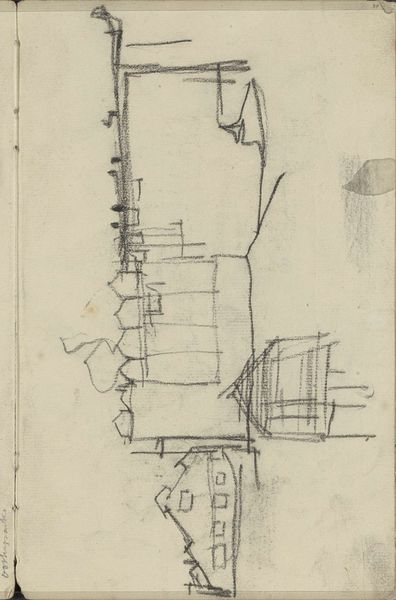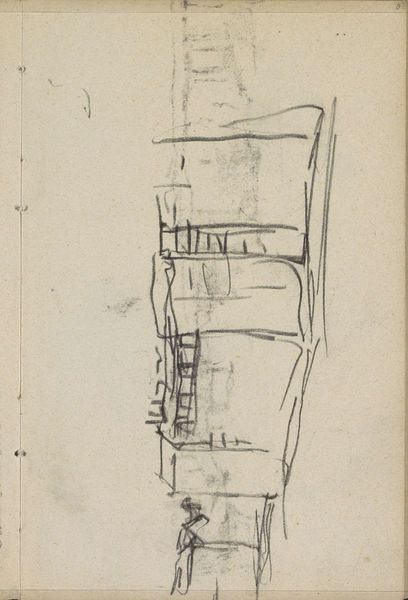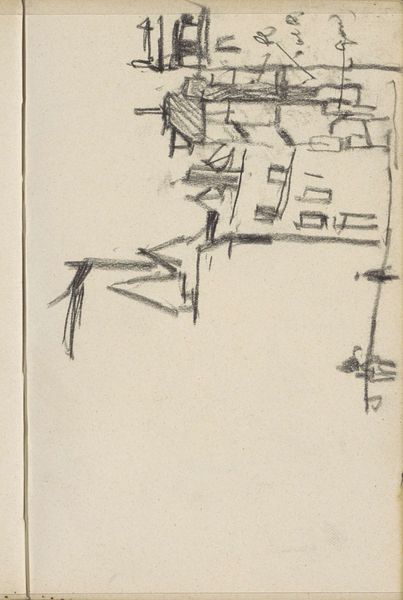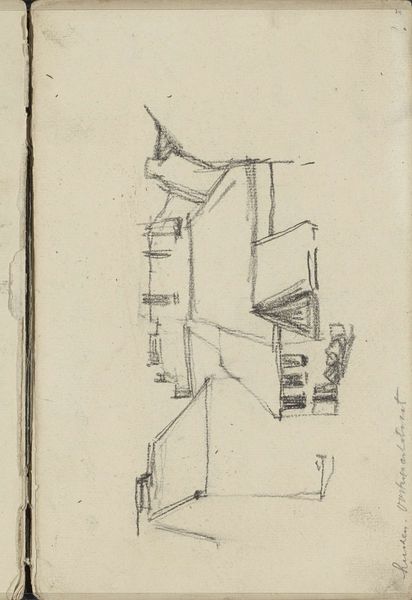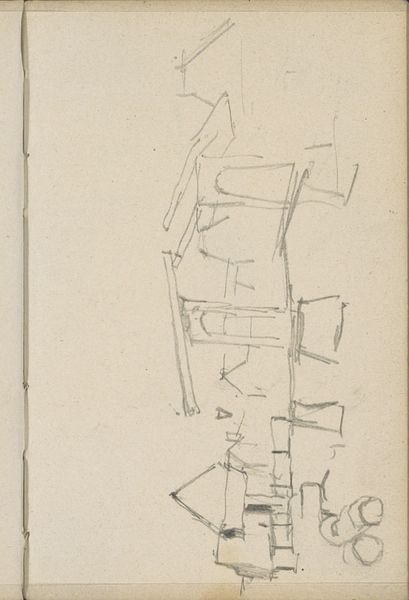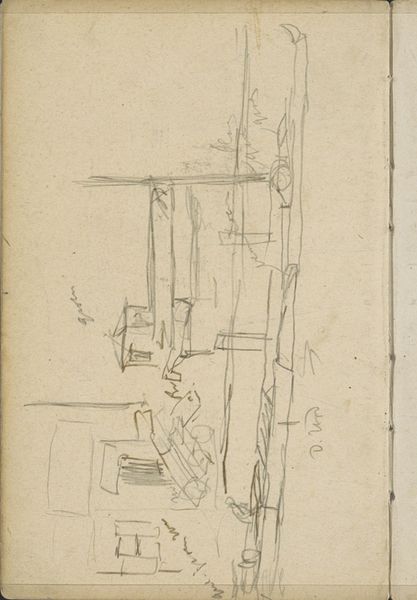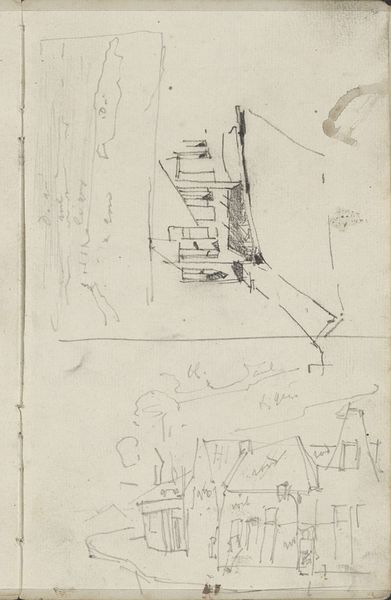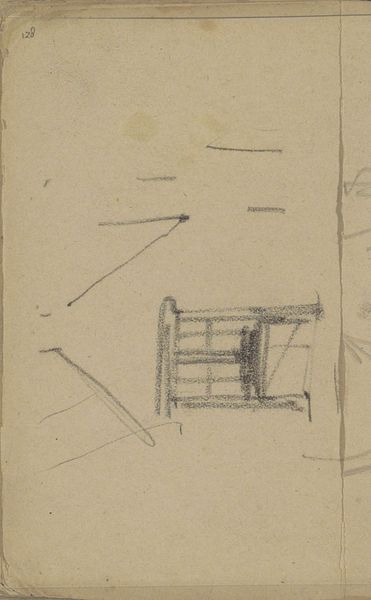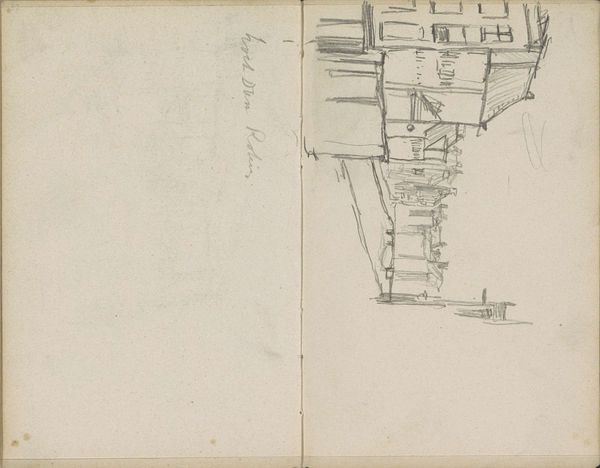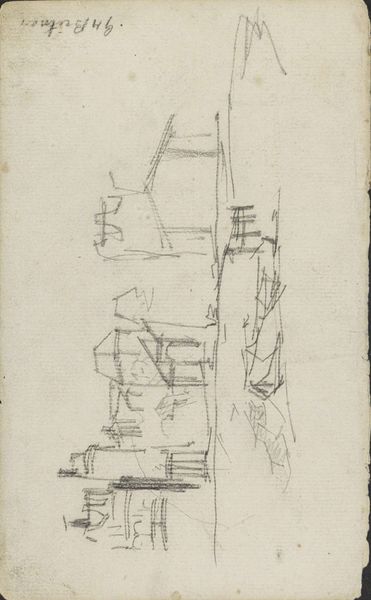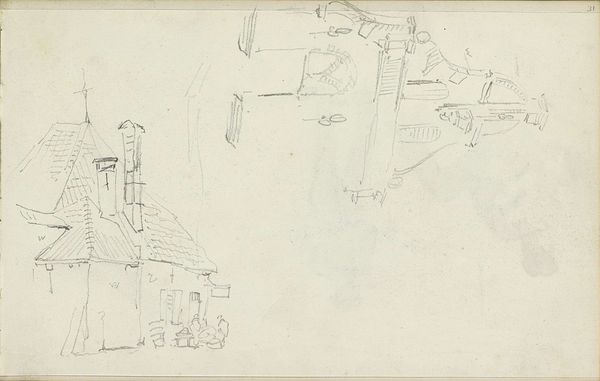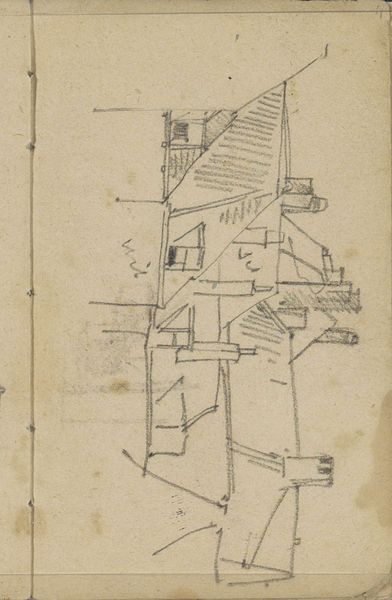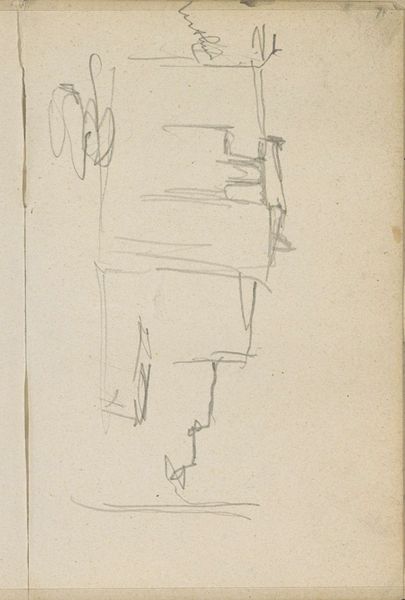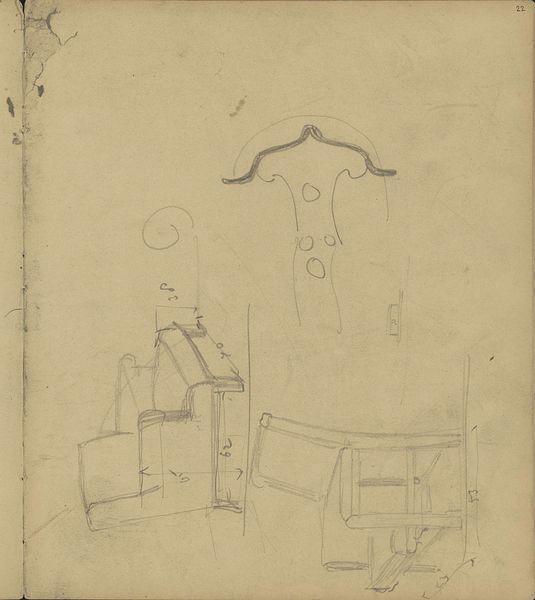
Gezicht op gebouwen, waarschijnlijk in Amsterdam c. 1902 - 1914
0:00
0:00
georgehendrikbreitner
Rijksmuseum
drawing, pencil
#
architectural sketch
#
drawing
#
aged paper
#
toned paper
#
homemade paper
#
dutch-golden-age
#
ink paper printed
#
sketch book
#
hand drawn type
#
personal sketchbook
#
pencil
#
sketchbook drawing
#
cityscape
#
sketchbook art
#
realism
Copyright: Rijks Museum: Open Domain
Editor: Here we have George Hendrik Breitner's "View of Buildings, probably in Amsterdam," made between 1902 and 1914, using pencil on paper. There's a quiet, almost melancholic feel to the sketch... all these barely defined lines, and it looks like the paper itself is quite aged. What strikes you about this piece? Curator: The apparent fragility is key. Look closely—Breitner isn't just depicting buildings; he’s capturing a fleeting moment in Amsterdam's urban development. Given the time, think about the social tensions rising, impacting working-class neighbourhoods, the rise of industry changing landscapes... This sketch isn’t simply a depiction, it is a witness. Don't you think? What narratives do these provisional lines evoke for you, when seen through the lens of urbanisation and social change? Editor: That's interesting. I hadn't really thought about the social changes of the time. So you see these shaky lines as potentially representing that instability? Curator: Exactly. Think about it: hastily sketched buildings representing transitional communities in Amsterdam's rapidly evolving social structure. It encourages a deeper understanding, an intersectional analysis connecting the drawing's formal elements with the socio-political context. What impact did rapid urban development have on the individual? How is Breitner grappling with the transformation of familiar environments? Editor: I see what you mean! I was focused on the aesthetic, but situating it within the era's upheavals gives it so much more resonance. I'll never see sketches the same way again. Curator: Precisely. Now, how do you plan to use that knowledge in the audio guide? How can we awaken the awareness of listeners about those fleeting moments and social transformations, reflected on something as ephemeral as an artist’s sketch?
Comments
No comments
Be the first to comment and join the conversation on the ultimate creative platform.
